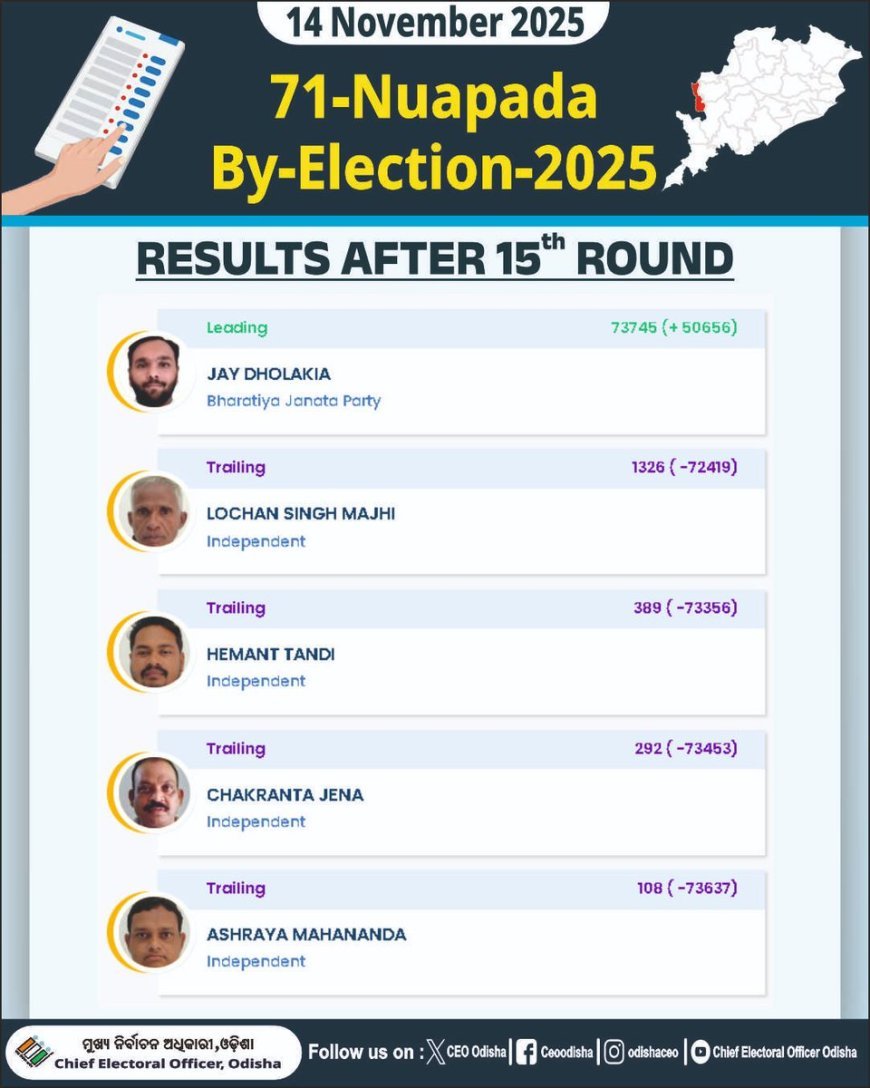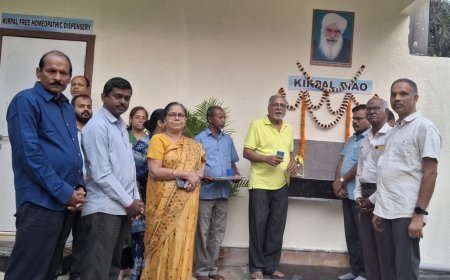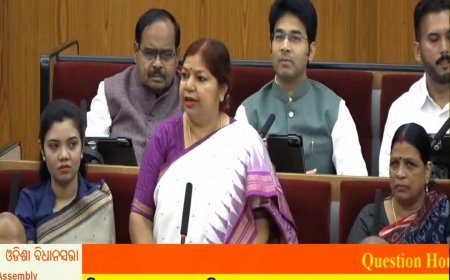Pre-Prepared for Sale :

By : | Sashi S Samanta |
The Nuapada by-election has not only delivered a political outcome — it has exposed a crisis that strikes at the heart of Odisha’s regional politics. The allegations emerging from within the Biju Janata Dal (BJD) suggest a disturbing narrative: that sections of the party’s own grassroots workers were “pre-prepared for sale” well before polling day, switching sides in exchange for money and silently supporting the BJP candidate. Whether every allegation holds true or not, the very perception of a pre-arranged defection raises serious questions about party loyalty, internal discipline, and the moral direction of political engagement in the region.
At the centre of the storm is the claim that BJD workers, who were expected to safeguard the party’s presence in the constituency, instead became bargaining agents in a covert pre-election market. Their alleged willingness to abandon the party line in favour of financial gain reflects a deeper erosion of ideological commitment — a decay that does not happen overnight. Such shifts, if orchestrated in advance, point toward a pattern of manipulation: money, influence, and quiet assurances working beneath the surface long before campaigning officially began.
Complicating this situation further is the candidature of Jay Dholakia — once closely associated with the BJD legacy of his late father, former MLA Rajendra Dholakia. His sudden alignment with the BJP was itself described by BJD leaders as a “betrayal,” but the party’s concerns run much deeper. It fears that the defection was not an isolated incident but part of a larger premeditated effort to draw away BJD loyalists, weaken its organisational core, and tilt the electoral balance through internal sabotage.
Additionally, the BJD’s accusations of Model Code of Conduct violations — alleged voter lurement, tiffin distribution, minors in rallies, and unauthorized activities near polling booths — paint a picture of a troubled and highly pressurized electoral environment. But beneath these high-profile complaints lies an unspoken anxiety: that external tactics alone cannot explain the party’s poor grip at the grassroots. The cracks may be internal, formed by workers who, according to reports, shifted allegiance after benefiting from undisclosed financial transactions.
What emerges is a portrait of a party facing two battles simultaneously. Externally, it challenges the BJP’s methods and demands accountability from election authorities. Internally, it must confront a far more sensitive truth — that its cadre base may no longer be as solid or committed as it once believed. A party built for decades on organisational strength cannot afford an erosion of trust at the very level where politics begins: the booth worker, the mobilizer, the local voice.
The phrase “pre-prepared for sale” is not just a title — it is a warning. It reflects the commercialization of loyalty, the collapse of ideological fidelity, and the danger of reducing grassroots politics to transactions. For Odisha, and for Nuapada in particular, this by-election becomes a case study in what happens when political machinery falters from the inside.
For the BJD, the introspection must be immediate and honest. For the electorate, the concern must be larger. Democracy weakens not only when votes are bought, but when the conscience of political workers is. As the dust of the Nuapada bypoll settles, The Common Times believes that the real result is not merely who won — but what this election exposed about the fragility of internal political ethics in a rapidly shifting landscape.











































